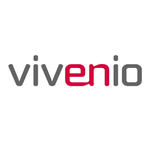Description

Airmeet

SquadDeck
Comprehensive Overview: Airmeet vs SquadDeck
As of my last update, here's a comprehensive overview of Airmeet and SquadDeck:
Airmeet
a) Primary Functions and Target Markets:
-
Primary Functions: Airmeet is a platform designed for hosting virtual events. It offers features for webinars, virtual conferences, meetups, and other forms of online gatherings. Key functionalities include interactive sessions, networking tables, event analytics, live chats, and customizable event spaces.
-
Target Markets: Airmeet primarily targets event organizers, businesses looking for virtual collaboration solutions, educational institutions, and community managers who need to host engaging online events. Its user base includes enterprises, small and medium-sized businesses (SMBs), non-profits, and educational sectors.
b) Market Share and User Base:
- Airmeet has grown significantly, especially with the surge in virtual events due to the COVID-19 pandemic. It competes with other virtual event platforms like Zoom, Hopin, and Remo. While precise market share data varies, Airmeet has been recognized for its ease of use and interactive capabilities, appealing to a global user base seeking more engaging virtual event experiences.
c) Key Differentiating Factors:
-
Networking Features: One of Airmeet’s standout features is the virtual networking tables, which allow participants to engage in meaningful conversations in smaller groups during an event.
-
Customization and Interactivity: Airmeet offers robust customization options for event spaces and integrates numerous interactive tools, like polls and Q&As, to engage attendees.
-
Focus on Attendee Experience: With a focus on improving attendee engagement, Airmeet provides features like gamification and analytics to optimize events in real-time.
SquadDeck
a) Primary Functions and Target Markets:
-
Primary Functions: SquadDeck is a digital tool aimed at managing teams and enhancing collaboration. Its features typically include task management, communication tools, project tracking, and performance analytics designed to support remote or hybrid work environments.
-
Target Markets: SquadDeck targets businesses of all sizes that require effective team management solutions, particularly in remote or distributed work setups. This includes startups, remote teams, and companies implementing hybrid work models.
b) Market Share and User Base:
- SquadDeck operates in a competitive market alongside established players like Trello, Monday.com, and Asana. Market share and precise user base statistics are often proprietary, but SquadDeck is appealing to niche markets by addressing specific pain points in team collaboration and remote work.
c) Key Differentiating Factors:
-
Integrated Communication Tools: Unlike some competitors, SquadDeck may offer more comprehensive built-in communication features, reducing the need for third-party communication apps.
-
Customization for Remote Work: It focuses heavily on customization options suitable for remote work environments, providing flexibility needed for diverse team setups.
-
Performance Analytics: SquadDeck might provide detailed analytics and insights to track team performance, enhancing decision-making processes for managers.
Comparison and Conclusion:
-
Market Positioning: Airmeet and SquadDeck serve different purposes; Airmeet is for virtual events, while SquadDeck is for team management and collaboration. Despite operating in distinct segments, both aim to enhance digital interactions.
-
User Experience: Airmeet focuses on creating immersive and interactive event experiences, while SquadDeck focuses on improving team productivity and communication.
-
Technological Innovation: Both platforms leverage technology to enhance user experience; Airmeet through event engagement tools and SquadDeck through efficient task and communication management systems.
Ultimately, organizations choosing between these platforms would base their decision on their specific needs for virtual events or team collaboration, as each excels in its domain.
Contact Info

Year founded :
2019
+1 541-745-8254
Not Available
United States
http://www.linkedin.com/company/airmeetcom

Year founded :
2022
+61 423 229 291
Not Available
Australia
http://www.linkedin.com/company/squaddeck
Feature Similarity Breakdown: Airmeet, SquadDeck
Airmeet and SquadDeck are platforms designed to facilitate virtual events and collaboration, but they focus on different user needs and offer various features. Here's a breakdown of their feature similarities and differences:
a) Core Features in Common
-
Virtual Event Hosting: Both platforms allow hosting virtual events, including webinars, conferences, and workshops.
-
Networking Tools: They offer features to enable networking among participants, such as breakout rooms or networking lounges.
-
Engagement Tools: Interactive elements like polls, Q&A sessions, and chat functionalities are available in both to boost attendee participation.
-
Live Streaming: Both platforms support live streaming capabilities to broadcast events to a wide audience.
-
Recording Capabilities: Events can be recorded for later access, allowing attendees to watch sessions they might have missed.
-
Analytics and Reporting: They provide analytics tools to measure event success and gather insights on attendee engagement.
b) User Interface Comparison
-
Airmeet: Airmeet's UI is designed with a focus on replicating the feel of physical events in a virtual space. It offers a spatial atmosphere with tables and lounges, making navigation intuitive for users seeking a more immersive experience. Its interface emphasizes simplicity and ease of use, making it suitable for organizers and attendees.
-
SquadDeck: SquadDeck might offer a more utilitarian UI, focusing on collaboration and teamwork. Its interface is likely streamlined to enable quick task management, team communication, and overall productivity enhancement. The design caters more towards a community or team-based approach rather than individual networking.
c) Unique Features
-
Airmeet:
- Social Lounge: A feature that mimics a physical lounge where attendees can move between tables and engage in small group conversations, enhancing networking possibilities.
- Speed Networking: Allows attendees to connect through random, timed video sessions, facilitating quick and effective networking opportunities.
-
SquadDeck:
- Team Collaboration Tools: It may offer more advanced collaboration tools such as task management, shared workspaces, and integration with productivity apps, focusing on enhancing teamwork.
- Community Building Features: Likely emphasizes features to help build and manage online communities more effectively, supporting long-term engagement.
Both platforms cater to different aspects of virtual interactions, with Airmeet focusing on enhancing the event and networking experiences and SquadDeck leaning towards team collaboration and productivity.
Features

Not Available

Not Available
Best Fit Use Cases: Airmeet, SquadDeck
Airmeet and SquadDeck serve different purposes and cater to various business needs, so understanding their best fit use cases can help you determine which solution might be best for your specific project or organization.
Airmeet
a) Types of businesses or projects best suited for Airmeet:
-
Large-Scale Conferences and Webinars:
- Airmeet is ideal for businesses and organizations looking to host virtual summits, conferences, or webinars. It can handle a large number of attendees, making it suitable for industry associations, academic institutions, and global corporations.
-
Networking Events:
- Businesses that prioritize networking can benefit from Airmeet's virtual social lounge and networking features, which facilitate interactive and engaging attendee experiences.
-
Educational Organizations:
- Universities and educational institutions that want to host online courses, workshops, or large educational events can use Airmeet for its strong engagement and interaction features.
-
Product Launches:
- Companies planning to unveil new products may find Airmeet useful for reaching a wide audience and providing interactive demo sessions.
d) Industry verticals and company sizes:
- Industry Verticals: Technology, Education, Healthcare, Event Management, Marketing.
- Company Sizes: Medium to large enterprises that require robust virtual event management capabilities with extensive networking features.
SquadDeck
b) Scenarios where SquadDeck would be the preferred option:
-
Team Collaboration and Internal Meetings:
- SquadDeck is designed for scenarios that require strong team collaboration and project management. This makes it suitable for startups and small to medium-sized businesses needing an efficient way to manage teamwork and internal communication.
-
Project Management:
- Companies that need a structured project management tool to enhance productivity and task management will find SquadDeck beneficial.
-
Remote Work Management:
- Organizations with remote teams can leverage SquadDeck to keep their distributed workforce connected, fostering collaboration and ensuring smooth operations across different time zones.
-
Agile Development:
- Businesses involved in software development or iterative project models can use SquadDeck for agile project management, sprint planning, and workflow optimization.
d) Industry verticals and company sizes:
- Industry Verticals: Information Technology, Consulting, Creative Agencies, Startups.
- Company Sizes: Small to medium-sized enterprises that require agile project management and enhanced team communication.
Summary
Airmeet is optimal for large-scale external events with a focus on engagement and networking, whereas SquadDeck is suited for internal team collaboration and efficient project management. Choosing between them largely depends on whether your priority is external audience interaction or internal team efficiency.
Pricing

Pricing Not Available

Pricing Not Available
Metrics History
Metrics History
Comparing teamSize across companies
Conclusion & Final Verdict: Airmeet vs SquadDeck
To conclude the comparison between Airmeet and SquadDeck, let's evaluate the overall value, pros and cons, and offer some recommendations for users.
a) Best Overall Value
Overall Value: Airmeet Airmeet offers the best overall value for users prioritizing extensive event features, networking, and attendee engagement capabilities, especially for virtual conferences and large-scale events. Its comprehensive platform features justify the investment for businesses focusing on event-driven growth and community building.
b) Pros and Cons
Airmeet
Pros:
- Extensive Features: Robust set of tools for hosting large-scale virtual events, including webinars, panel discussions, and networking sessions.
- Networking Capabilities: Advanced functionality for creating meaningful connections among attendees through virtual tables and social lounges.
- Engagement Tools: Interactive features such as polls, Q&As, and chat options to enhance audience participation.
- Accessibility: Offers a seamless experience across devices and platforms.
Cons:
- Complexity: May require a learning curve for new users unfamiliar with its extensive features.
- Cost: Can be expensive for smaller businesses or organizations that do not utilize its full capabilities.
SquadDeck
Pros:
- User-Friendly: Simple and intuitive interface suitable for smaller teams or events without a steep learning curve.
- Affordability: Generally more cost-effective, especially for smaller events or teams with limited budgets.
- Team Collaboration: Integrated features for team management and collaboration, useful for internal meetings and small group settings.
Cons:
- Limited Scalability: May lack the advanced features needed for large-scale or complex events.
- Fewer Networking Options: Does not offer the same level of networking functionalities as Airmeet.
c) Recommendations for Users
-
For Large Events and Networking Focus: Choose Airmeet if you are organizing large conferences, multi-session events, or virtual exhibitions where attendee interaction and engagement are crucial.
-
For Small Teams and Budget-Friendly Needs: Go with SquadDeck if you are a small team focusing on internal meetings, project collaborations, or smaller, more informal virtual gatherings.
-
Trial and Assessment: Both platforms may offer trial versions or demos; take advantage of these to assess the interface, features, and suitability for your specific needs before finalizing a purchase.
-
Scalability Consideration: Consider future growth; if anticipating larger events or audiences in the future, starting with Airmeet might save time and resources related to future platform transitions. However, if your needs remain modest, SquadDeck provides a cost-effective solution.
Ultimately, the choice between Airmeet and SquadDeck hinges on your specific use case, event size, and budget priorities.
Add to compare
Add similar companies




